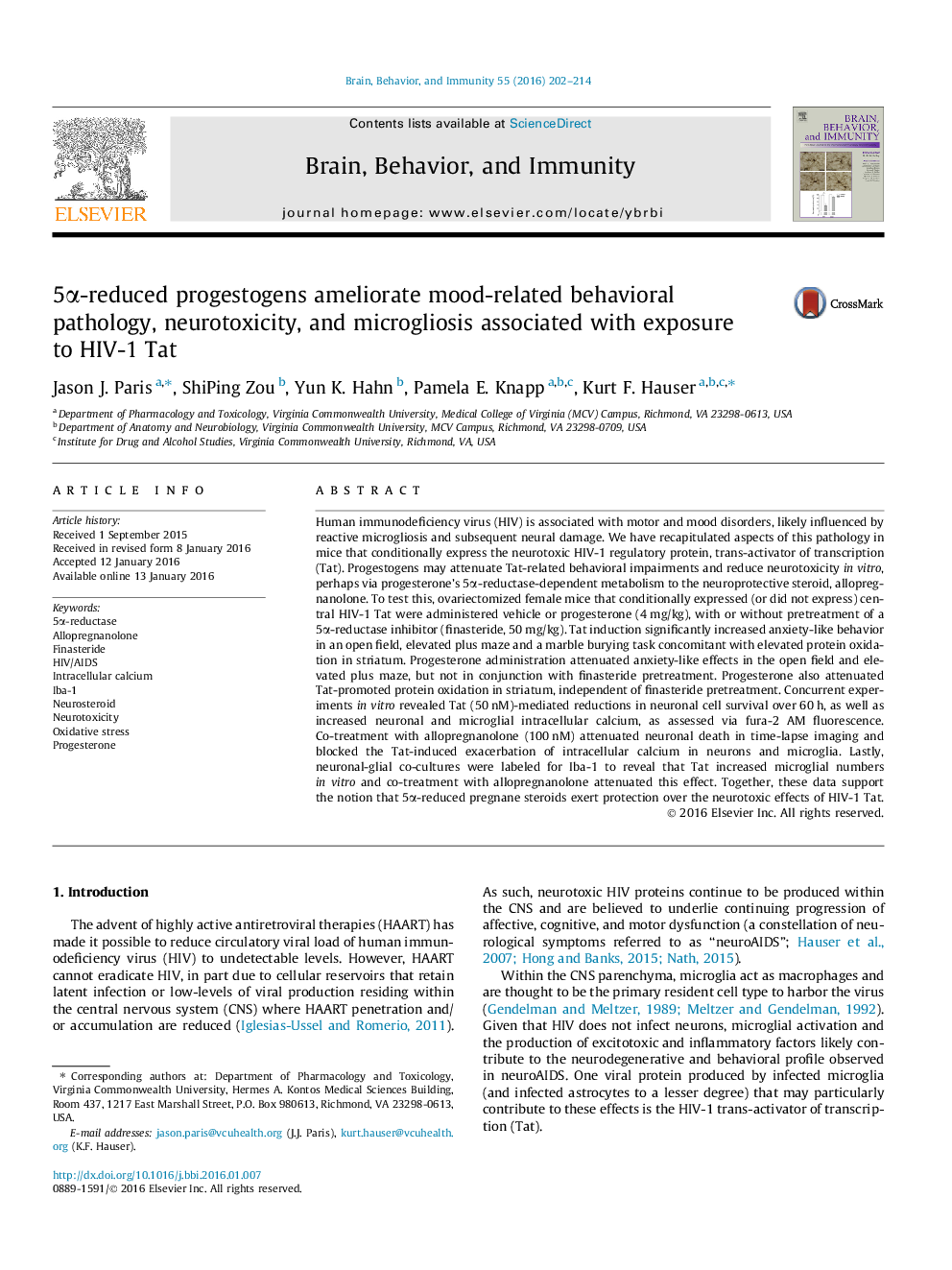| Article ID | Journal | Published Year | Pages | File Type |
|---|---|---|---|---|
| 7280364 | Brain, Behavior, and Immunity | 2016 | 13 Pages |
Abstract
Human immunodeficiency virus (HIV) is associated with motor and mood disorders, likely influenced by reactive microgliosis and subsequent neural damage. We have recapitulated aspects of this pathology in mice that conditionally express the neurotoxic HIV-1 regulatory protein, trans-activator of transcription (Tat). Progestogens may attenuate Tat-related behavioral impairments and reduce neurotoxicity in vitro, perhaps via progesterone's 5α-reductase-dependent metabolism to the neuroprotective steroid, allopregnanolone. To test this, ovariectomized female mice that conditionally expressed (or did not express) central HIV-1 Tat were administered vehicle or progesterone (4 mg/kg), with or without pretreatment of a 5α-reductase inhibitor (finasteride, 50 mg/kg). Tat induction significantly increased anxiety-like behavior in an open field, elevated plus maze and a marble burying task concomitant with elevated protein oxidation in striatum. Progesterone administration attenuated anxiety-like effects in the open field and elevated plus maze, but not in conjunction with finasteride pretreatment. Progesterone also attenuated Tat-promoted protein oxidation in striatum, independent of finasteride pretreatment. Concurrent experiments in vitro revealed Tat (50 nM)-mediated reductions in neuronal cell survival over 60 h, as well as increased neuronal and microglial intracellular calcium, as assessed via fura-2 AM fluorescence. Co-treatment with allopregnanolone (100 nM) attenuated neuronal death in time-lapse imaging and blocked the Tat-induced exacerbation of intracellular calcium in neurons and microglia. Lastly, neuronal-glial co-cultures were labeled for Iba-1 to reveal that Tat increased microglial numbers in vitro and co-treatment with allopregnanolone attenuated this effect. Together, these data support the notion that 5α-reduced pregnane steroids exert protection over the neurotoxic effects of HIV-1 Tat.
Keywords
Related Topics
Life Sciences
Immunology and Microbiology
Immunology
Authors
Jason J. Paris, ShiPing Zou, Yun K. Hahn, Pamela E. Knapp, Kurt F. Hauser,
